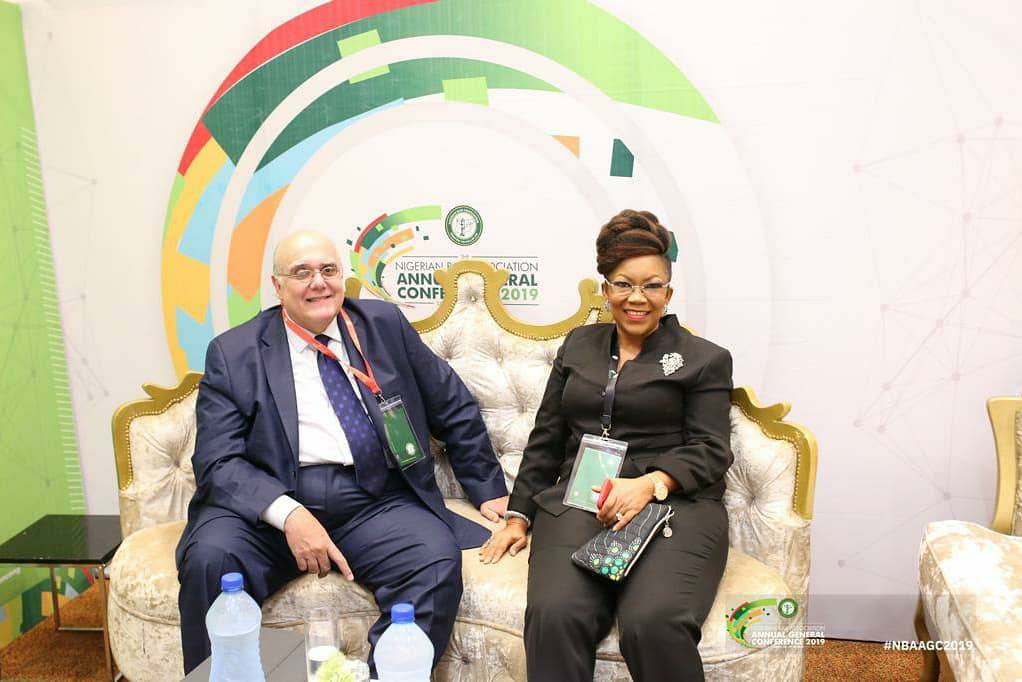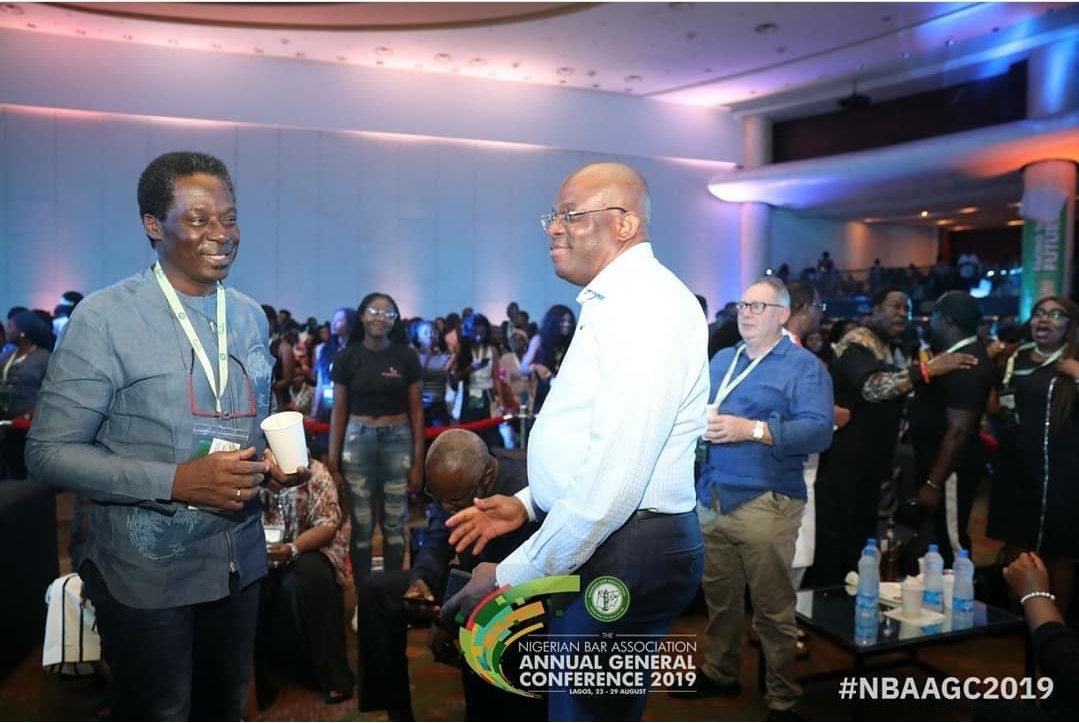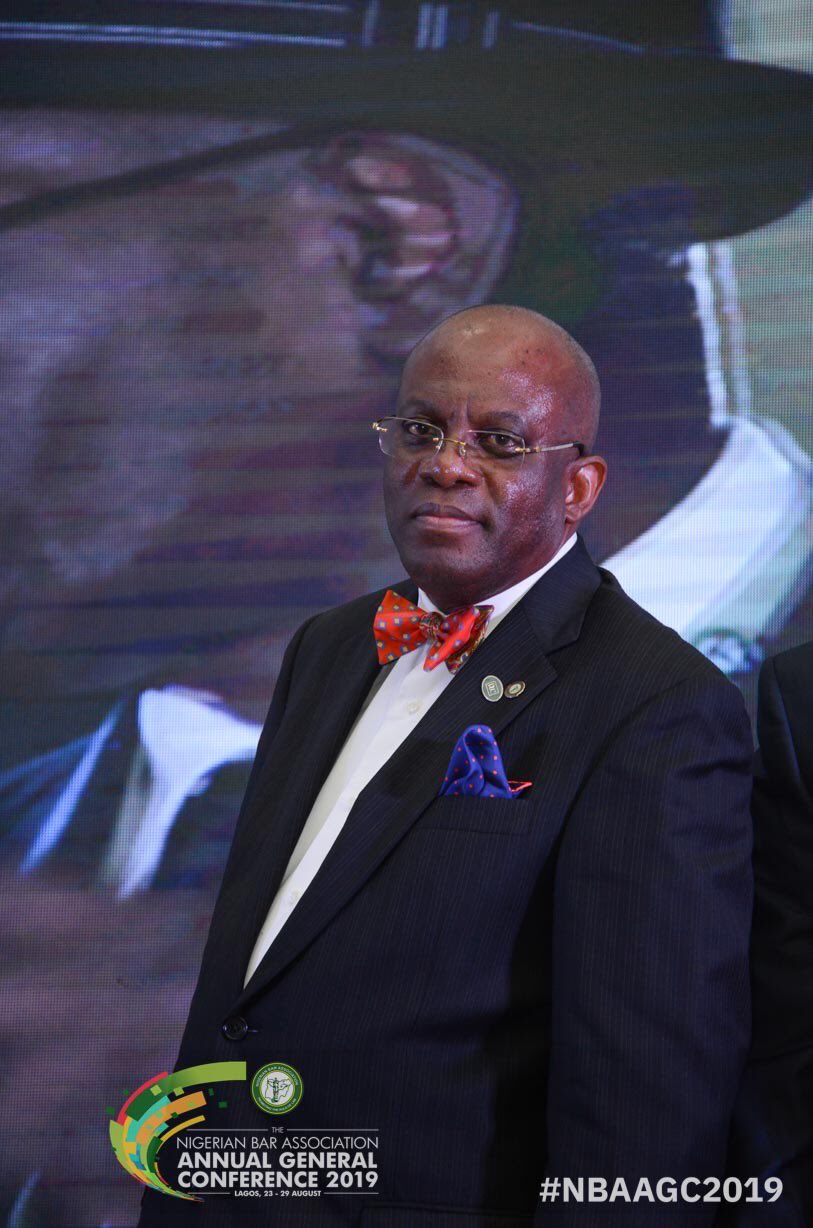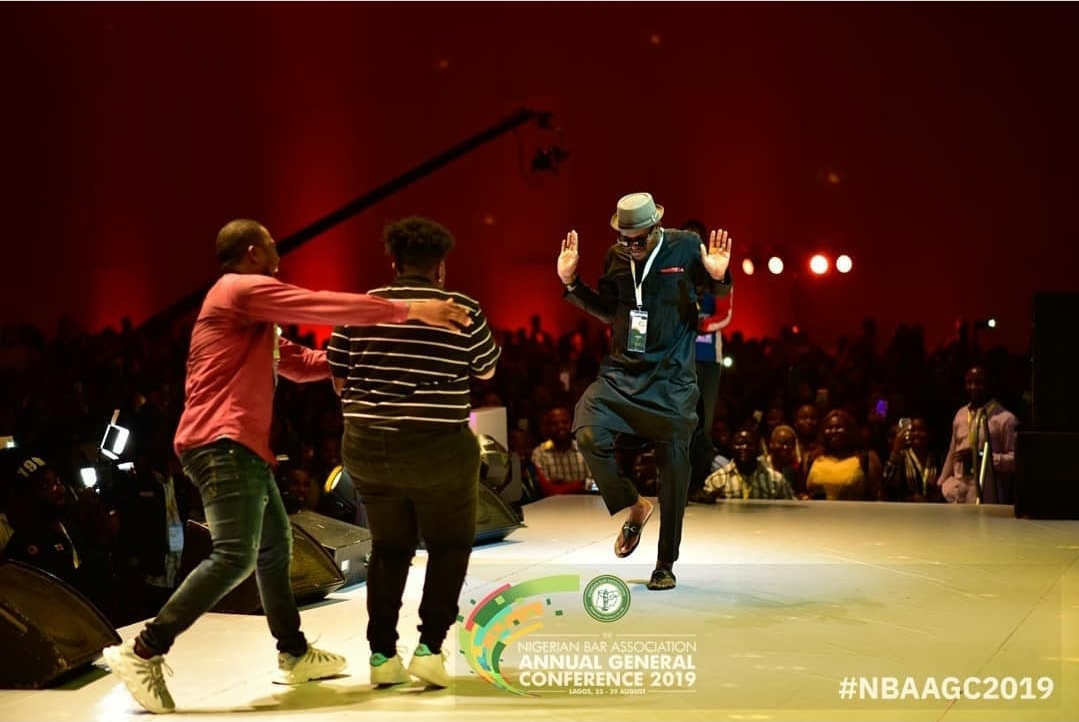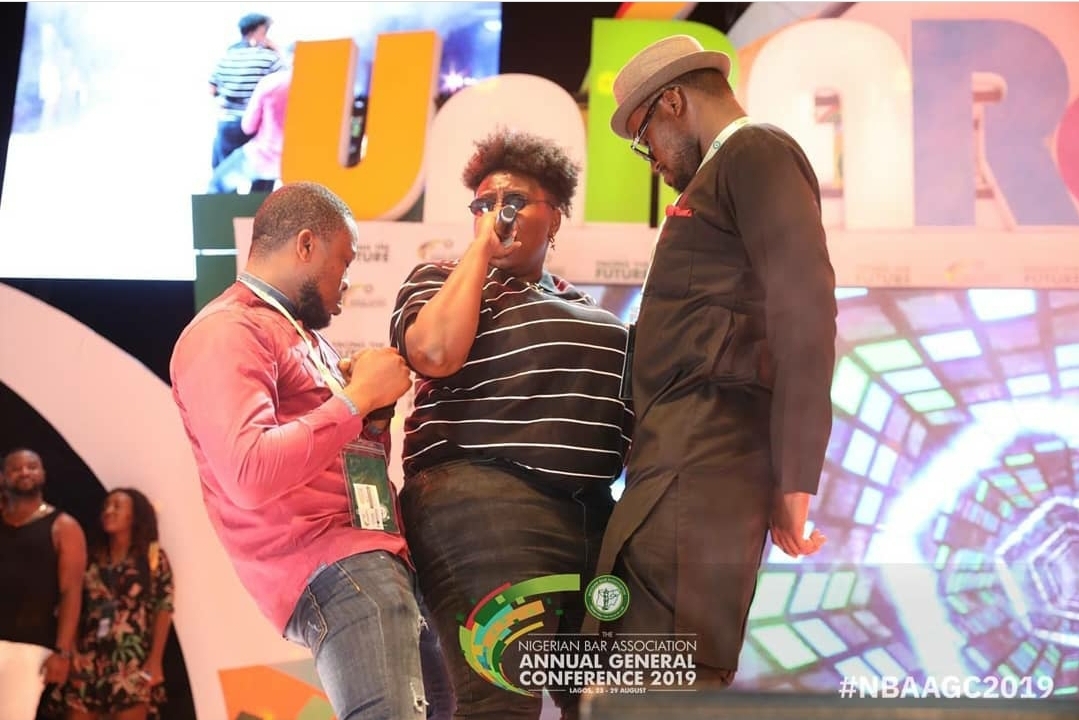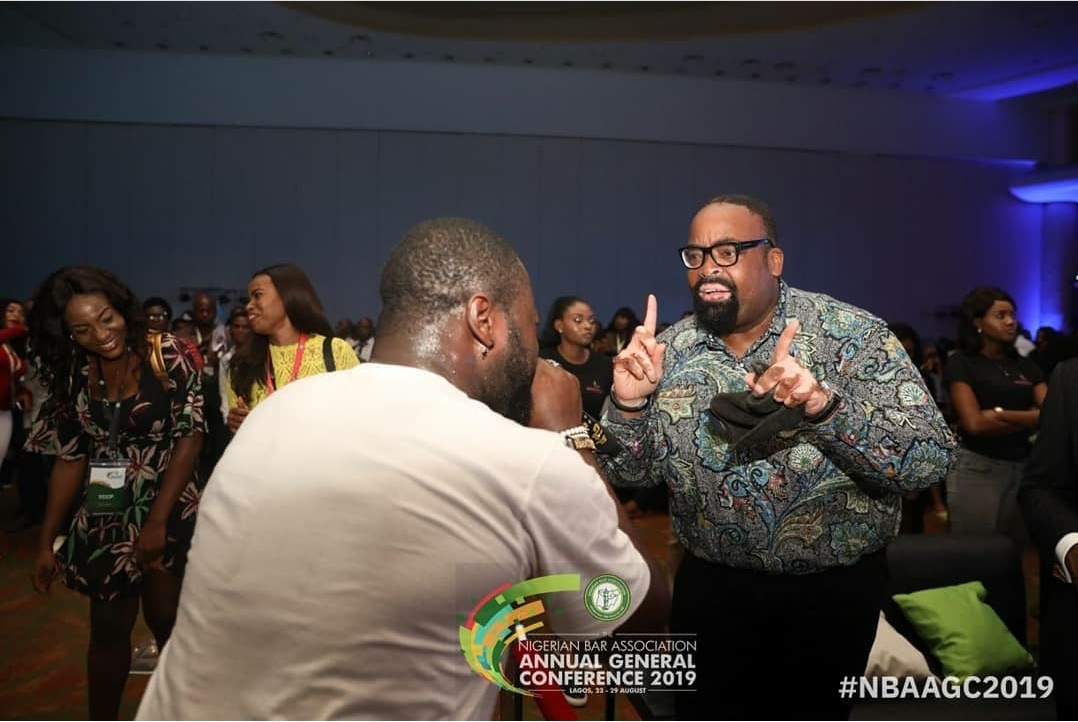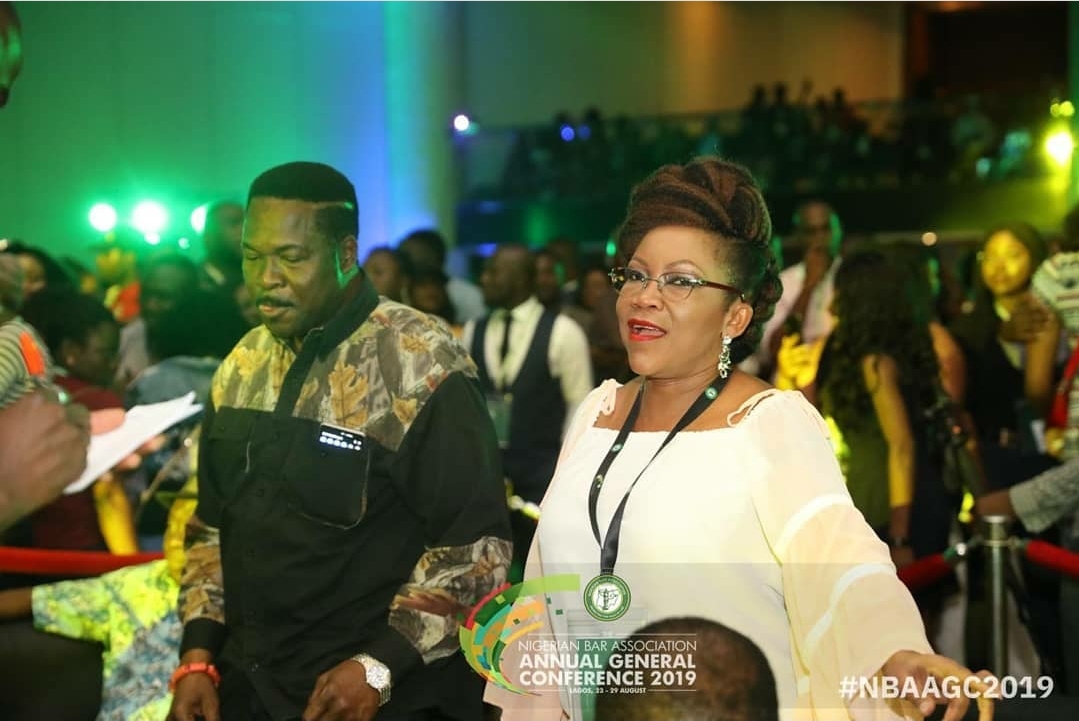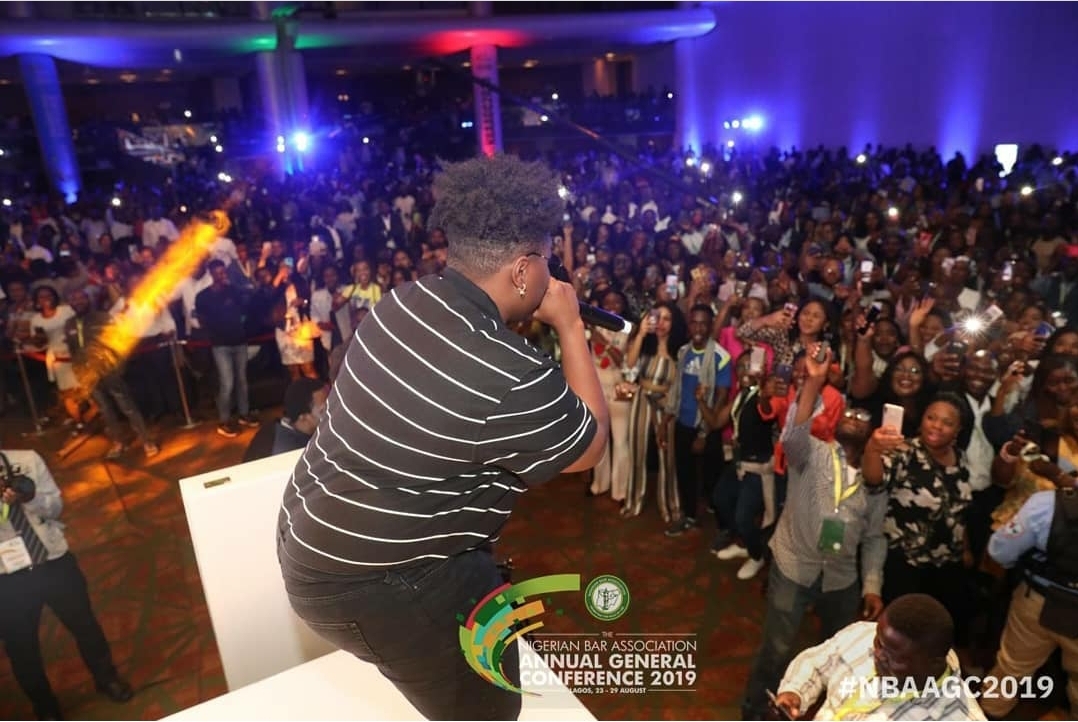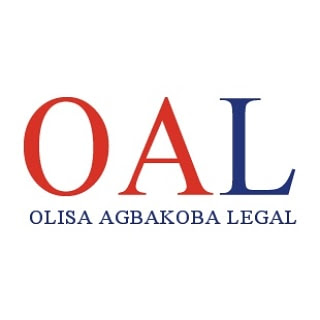
by Legalnaija | Aug 4, 2020 | Uncategorized
Introduction |
The
Finance Act 2019 (“the Finance Act” or “the Act”) was signed into law on 3
February 2020. The major aim of the Act is to make the provisions of existing
tax legislations more responsive to tax reform. The Act amended the Companies
Income Tax Act, Cap C21, Value Added Tax Act, Cap. V1, Customs and Excise
Tariff, Etc. (Consolidation) Act, Cap. C49, Personal Income Act, Cap. P8,
Capital Gains Tax Act, Cap. C1, Stamp Duties Act, Cap. S8 and Petroleum Profit
Tax Act, Cap. P13, Laws of the Federation of Nigeria 2004.
One
of the highlights of the Act is the introduction of a new tax regime for
non-Nigerian companies with ‘significant
economic presence’ (“SEP”) in Nigeria. Section 4 of the Finance Act amended
Section 13(2) (c), (e) and (4)of the Companies Income Tax Act and empowered the
Minister of Finance to, by order; determine what constitutes the significant
economic presence of a company other than a Nigerian company.
In
exercise of the above powers, the Honourable Minister of Finance, Budget and
National Planning made the Companies Income Tax (Significant Economic Presence)
Order, 2020 (“the Order”).
The
Order sets out, among other things, the criteria for determining non-resident
companies with significant economic presence.
Significant Economic
Presence as Basis for Taxation of Foreign Companies
Section
13(2) (c), (e) and (4) of the Companies Income Tax Act(“CITA”) as amended by
Section 4 of the Finance Act provides as follows:
“The profits of a
company other than a Nigerian company from any trade or business shall be
deemed to be derived from or taxable in Nigeria:
(c) if it transmits, emits or receives
signals, sounds, messages, images or data of any kind by cable, radio,
electromagnetic systems or any other electronic or wireless apparatus to Nigeria
in respect of any activity, including electronic commerce, application store,
high frequency trading, electronic data storage, online adverts, participative
network platform, online payments and so on, to the extent that the company has
significant economic presence in Nigeria and profit can be attributable to such
activity;
(e) if the trade or
business comprises of furnishing of technical, management, consultancy or
professional services outside of Nigeria to a person resident in Nigeria to the
extent that the company has significant economic presence in Nigeria;
Provided that the
withholding tax income under this paragraph shall be the final tax on the
income of a non-resident recipient who does not otherwise fall within the scope
of subsection (2) (a)–(e).
(4)
For the purpose of subsection (2) (c) and (e), the Minister may by order,
determine what constitutes the significant economic present of a company other
than a Nigerian company.”
In
the light of the foregoing, the Companies Income Tax (Significant Economic
Presence) Order, 2020 (“the Order”) provides that for the purpose of the above
provisions of CITA, a non-Nigerian company shall have significant economic
presence in Nigeria where it derives gross turnover or income of more than ₦25
million or its equivalent in other countries, in that year, from any or
combination of the following –
“(i)streaming or
downloading services of digital contents, including but not limited to movies,
videos, music, applications, games and e-books to any person in Nigeria,
(ii) transmission of
data collected about Nigerian users which has been generated from such users’
activities on a digital interface including website or mobile applications,
(iii) provisions of
goods or services… directly or indirectly through a digital platform to
Nigeria, or
(iv)
provision of intermediation services through a digital platform, website or
other online applications that link suppliers and customers in Nigeria”;
In
determining the ₦25 million threshold
above, the activities of connected persons shall be aggregated. The Order
defines “connected persons” to mean associates or business associates where one
person is involved in the management, control or capital of the other or where
same person or persons are involved in the management, control or capital of
both enterprises.
The
Order also provides that where a non-resident company uses Nigerian domain name
(.ng) or registers a website address in Nigeria; or has a purposeful and
sustained interaction with persons in Nigeria, including reflecting the prices
of its products and services in Nigerian currency or providing options for
billing or payment in Nigeria currency, such company will be deemed to have
significance economic presence in Nigeria.
Furthermore,
a non-resident company will be deemed to have significant economic presence in
Nigeria if the company provides technical (including advertising services,
training and provision of personnel), professional, management or consultancy
services in return for payment to a person resident in Nigeria or to a
non-Nigerian company with a fixed base or agent in Nigeria except where such
payment is made to an employee of the person to whom the services are rendered
under a contract of employee as well as payments made for educational purposes
or by a foreign base of a Nigerian company.
The
Order defines “any other electronic or wireless apparatus” as used in Section
13(2)(c) of the Finance Act to include digital or related activities carried on
through satellite.
Implications of this
new tax regime
In
the light of the foregoing, non-resident companies with SEP are now required to
register for income taxes, prepare financial statements in respect of the
income generate from Nigeria; determine the profits that are attributable to
their activities in Nigeria, and file annual tax returns to the Federal Inland
Revenue Service (“the FIRS”) as provided by CITA.
On
the other hand, Nigerian companies are now required to deduct withholding tax
(“WHT”) from payments made for services provided by non-Nigerian companies.
Additionally,
the Order provides that foreign companies covered under any multilateral
agreement to which Nigeria is a party, or any consensus arrangement aimed at
addressing the tax challenges arising from the digitalization of the economy,
will be treated in accordance such agreement or arrangement from the effective
date in Nigeria.
This
is noteworthy since Nigeria is a member of the Organization for Economic
Co-operation and Development’s Inclusive Framework on Base Erosion and Profit
Shifting (“the OECD Framework on BEPS” or “the framework”). Thus, the
government recognizes that an agreement may be reached under the framework on a
unified approach for the allocation of taxing rights and profits pertaining to
SEPs.
However,
the framework’s current unified approach will only apply to groups with annual
revenues above €750 million ($840 million). Also, even where this threshold is
met, a group may still be excluded from the scope of the approach if its profit
margins are below a threshold which is yet to be determined. The implication of
the foregoing is that many non-resident groups that do not qualify to be taxed
under the current unified approach may continue to be taxed under the extant
SEP Order and the applicable rules.
It
is therefore advisable for non-resident companies who wish to rely on the any
tax treaties or consensual arrangement including the OECD Framework on BEPS, to
engage FIRS in this regard, to claim benefit under such arrangement.
Challenges
The
first challenge to be noted with respect to this tax regime is that while the
Order was published on 29 May 2020, the effective date is 3 February 2020 which
is the effective date of the Finance Act, having been signed by the President
of Nigeria on that day. The implication of this on transactions and/or payments
carried out before 29 May 2020 is still unclear. It is expected that the
Minister and/or FIRS will issue a circular to provide guidance in this regard.
It
is also not clear how the FIRS intends to enforce this Order with respect to
non-resident digital companies. While Nigerian customers of such companies may
be expected to make withholding tax (“WHT”) deductions and remit to FIRS; FIRS
may yet issue a circular to this effect.
Moreover,
neither the Finance Act nor the Order states how to determine the amount of
profits of a foreign digital company that will be taxed. While the OECD public
consultation document, of 13 February 2019 on Addressing the Tax Challenges of the Digitalisation of the Economy,
contemplates that only a portion of the profits from the transaction should be
taxed in the jurisdiction where the non-resident company has significant
economic presence, it is not yet settled whether this can be applied in Nigeria
in view of the arm’s length principle of profit attribution provided in the
Income Tax (Transfer Pricing) Regulation 2018 and other relevant legislations,
and reemphasized by the Tax Appeal Tribunal in the case of Prime Plastichem Nigeria Limited
v. Federal Inland Revenue Service, Appeal No.: TAT/LZ/CIT/015/2017, judgment delivered on 19 February
2020. Thus, fractional apportionment of profit may only apply to companies with
SEP, if a new legislation or guideline is introduced to allow such method of
determining taxable profit.
In
practice, when FIRS is unsure about the taxable profits of non-residents, an
assessment is based on a percentage (usually 6%) of the Nigerian sourced
turnover. It must however be noted that companies with SEP are not included in
the categories of non-residents that can be taxed in this manner. Nevertheless,
FIRS can still employ this method of taxation, relying on sections 30 and 65 of
CITA that allows FIRS to tax companies using a best of judgment assessment.
Conclusion
Non-resident
companies with a customer base in Nigeria are advised to consider how this new
tax regime affects them. While we await clarifications from FIRS on the gray
areas pointed out above, affected companies may, in the meantime, engage FIRS
on these issues. This will help to avoid disputes and possible double taxation.
Nigerian
companies are also advised to consider deducting WHT from payments made to
non-resident digital companies in view of this new tax regime.
Non-resident
companies with SEP in Nigeria are also advised to bear in mind the provisions
of relevant treaties and arrangements that may affect their tax liability when
negotiating agreements. Both resident and non-resident companies are advised to
seek expert opinion on specific issues that may affect them.
Authors:
Ugochukwu
Eze
Trainee
Associate,
Olisa
Agbakoba Legal.
Ifeatu Medidem
Senior
Associate/Practice Manager,
Olisa
Agbakoba Legal.
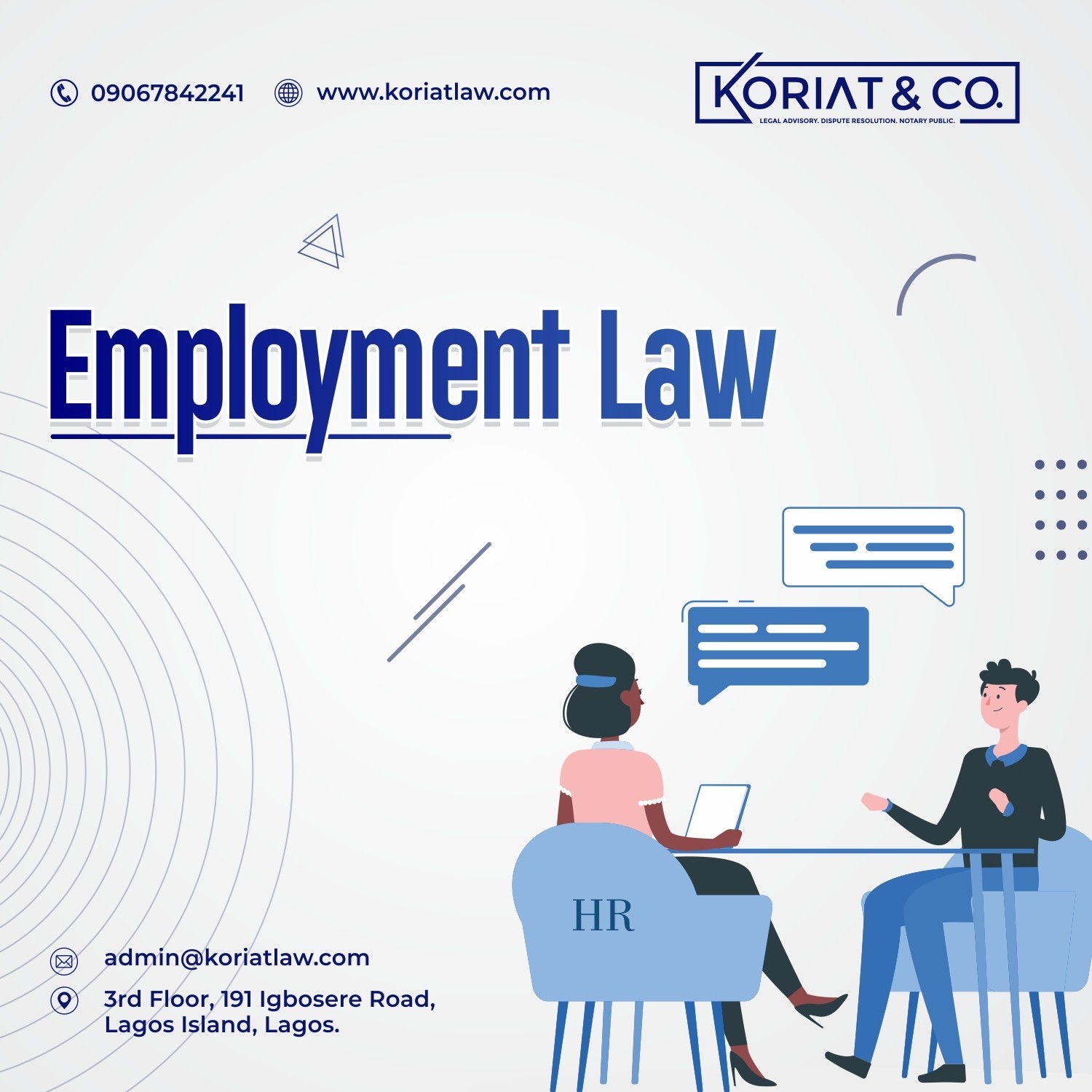
by Legalnaija | Aug 4, 2020 | Uncategorized
1. What is the meaning of Constructive Dismissal?
In order to discourage hostile work environment, common law sides with an employee who has been subjected to a forced or compulsory resignation, especially where it is clear that the employer has pressured the employee into involuntary resignation without any reasonable ground.
Whenever a resignation is not voluntary, the #law views it as a kind of unlawful #termination known as constructive dismissal or constructive discharge. In C.B.N. v. Aribo (2018) 4 NWLR (Pt. 1608) 130, the Supreme Court held as follows:
“A forced or compulsory resignation by an employee amounts to constructive dismissal ……. In this case, the respondent did not voluntarily resign. His employer (the bank) advised him to resign after the 1st appellant revoked the bank’s licence to conduct foreign exchange and fined it for illegal foreign exchange transaction. In the circumstance, the respondent’s resignation amounted to a constructive dismissal.” (P. 172, paras. C-E)
Constructive dismissal is a type of disengagement which arises from the involuntariness of the employee’s decision to leave an employment, which entitles the employee to sue the employer after exiting the employment. According Hon. Justice Kanyip in Balonwu v. Voluntary Service Overseas (VSO) International, “constructive dismissal/discharge once proved evinces a poor and unfair labour practice on the part of the employer”.
2. When Can Constructive Dismissal Arise?
From notable judicial decisions, constructive dismissal may arise in two circumstances resulting in involuntary resignation:
1. When an employee resigns on the advice or request of the employer; or
2. When an employee is forced by the employer to resign.
Management’s advice to an employee to resign must be proved by credible evidence and this can be established through the email or memo or report of a panel. For instance, in Mrs. Vivien Folayemi Asana v. First Bank of Nigeria Ltd, the judgment of which was delivered on 9th October 2018, the National Industrial Court held thus:
“By Exhibit C5/D3 (i.e. Claimant’s letter of resignation and Exit Form), the claimant stated thus: “Further to the request that I should resign, by Management of First Bank of Nigeria Ltd. I hereby tender my letter of resignation”. (words in parenthesis supplied for clarification).
A worker may be forced into #resignation where the employer’s action or action is #discriminatory, oppressive, humiliating or intolerable and the #employee has no choice but to resign. In Mr. David A. Fadipe v. Cedarcrest Hospitals Limited, the Court held that constructive dismissal means the attempt by an employer to have the employee resign, rather than outright firing the employee.
For instance, while relying on the case of Miss Ebere Ukoji v. Standard Alliance Life Assurance Co. Ltd [2014] 47 NLLR (Pt. 154) 531 NIC, my lord Justice Kanyip, President of the National Industrial Court, in the Balonwu v. Voluntary Service Overseas (VSO) International, held as follows:
“From Miss Ebere Ukoji v. Standard Alliance Life Assurance Co. Ltd, the employer need not have asked the employee to resign. The behaviour of the employer is sufficient once it is intolerable or heinous that the employee has no choice but to resign. The employer must have created such working conditions or so changed the terms of employment that the employee has little or no choice but to resign. It must be noted though that the claimant’s case in the instant case is not that the employer changed the terms of employment. Where the employer makes life extremely difficult for the employee, to attempt to have the employee resign, that will amount to constructive dismissal.
Below is a list of unbearable behaviours or circumstances which the courts have held to justify an employee to resign and make a claim for constructive dismissal on the ground of involuntary resignation:
– Actual or repudiatory breach of employment contract such as employer’s unilateral reduction of salary, demotion, non-payment of salaries;
– Victimization, witch-haunt, vendetta, retaliation, targeting the victim for whistleblowing or filing a complaint or grievance procedure against a colleague or superior;
– Discrimination on ground of sex, age, religion, ethnicity or nationality, disability, etc;
– Gender harassment, for example telling female colleague that “this is a boys club” or a male colleague that “why do you like ladies’ job?”
– Racial harassment in form of racial slurs, insults, jokes, disgust, degrading comments and intolerance of difference or other form of racial harassment;
– Personal harassment such as inappropriate comments, offensive jokes, personal humiliation, critical remarks, ostracizing behavious, intimidation tactics, or any other behavior that creates intimidating and offensive work environment for the victim.
– Physical or verbal harassment or workplace violence (such as physical attack or destroying something to intimidate the victim) or threat of violence (such as shaking fists at the victim’s face);
– Power or psychological harassment in form of excessive or impossible targets above employee’s ability or resources, demeaning demands far below the employee’s designation, intrusion of personal life such as unreasonable tracking or monitoring of personal device, belittling acts, discrediting or challenging everything the victim says or does, cyberbullying the victim,
– Third party harassment, which involves someone from outside of the organization, usually vendor, supplier, customer or client of the company who is friends with a colleague or boss (i.e. the perpetrator).
Anyone one of the above (happening alone) or a collection of some of the above circumstances are enough to justify immediate resignation and a claim for constructive dismissal by the victim.
Whatever an employee finds unbearable or intolerable, the employee is required to show that the behaviour of the employer is so intolerable or heinous that the employee has no choice but to resign. The employer must have created such working conditions or so changed the terms of employment that the employee has little or no choice but to resign.
While relying on the case of Miss Ebere Ukoji v. Standard Alliance Life Assurance Co. Ltd [2014] 47 NLLR (Pt. 154) 531 NIC, my lord Justice Kanyip, President of the National Industrial Court, in the Balonwu v. Voluntary Service Overseas (VSO) International, held as follows:
“From Miss Ebere Ukoji v. Standard Alliance Life Assurance Co. Ltd, the employer need not have asked the employee to resign. The behaviour of the employer is sufficient once it is intolerable or heinous that the employee has no choice but to resign. The employer must have created such working conditions or so changed the terms of employment that the employee has little or no choice but to resign. It must be noted though that the claimant’s case in the instant case is not that the employer changed the terms of employment. Where the employer makes life extremely difficult for the employee, to attempt to have the employee resign, that will amount to constructive dismissal. The employee may resign over a single serious incident or over a pattern of incidents. But generally, the employee must have resigned soon after the incident?”
3. How Does an Employee Prove Force, Coercion or Involuntariness of a Resignation?
It is sometimes difficult to prove that an employee has been forced to resign. Circumstantial evidence may help but it is better to have direct evidence. For instance, where there is an email or memo or a report of investigation from the management requesting, advising or directing an employee to resign, the job of proving involuntariness will become easy. It is important for all employees to keep proper record of email communication, especially on disciplinary process.
Sometimes, also, employees may assist the court in setting out in their respective resignation letters, the background facts that are relevant to their decision to resign. For instance, in Mr. Charles Ughele v. Access Bank Plc, the judgment of the National Industrial Court, which was delivered on 10th February 2017, the National Industrial Court held thus:
“The claimant did not leave anyone in doubt that he resigned involuntarily. Exhibit C4 (same as Exhibit D4) is the Exit Form. Against the reasons for exit, the claimant ticked “redundancy” under “involuntary”; and under question 1 at page 2, to the question, “What are your primary reason(s) for leaving?”, the claimant answered, “Management decision to create room for new people to work with new GM”.
It is important for the employee to have clear and credible evidence to show the employer’s request, advice or directive to the employee to resign or some other unpleasant actions of the management which, indeed, forced the employee to resign.
4. When Must the Employee Resign? What happens if resignation is delayed?
In order to successfully make a claim for constructive dismissal, the victim must have resigned immediately or within a reasonable time after experiencing the unpleasant incident. Delay in putting a resignation letter may amount to acquiescence and, consequently, destroy the chance of claiming for constructive dismissal.
The case of Western Excavations v. Sharp [1978] 1 All ER 713 points to the fact that there must be a repudiatory breach (actual or anticipatory) on the part of the employer, which must be sufficiently serious to justify the employee resigning; the employee must resign in response to the breach; and the employee must not delay too long in acting on the breach.
Also, in Joseph Okafor v. Nigerian Aviation Handling Company Plc, the judgment of which was delivered on 25th April 2018, National Industrial Court held thus:
“…to be able to succeed in a claim for constructive dismissal, the claimant must show that he resigned soon after the incident(s) he is complaining about.”
According to Justice Kanyip, President of the National Industrial Court, in the Balonwu v. Voluntary Service Overseas (VSO) International:
“The employee may resign over a single serious incident or over a pattern of incidents. But generally, the employee must have resigned soon after the incident?”
It is difficult to set a definite timeline for all cases, as every case will be determined on its merits. If an employee resigns within a reasonable time after becoming a victim of unbearable and unpleasant circumstance, the court will grant his or her claim for constructive dismissal.
For instance, in the Balonwu’s case, the employee (a #Country Director of the Voluntary Service Overseas (VSO) International) resigned 3 days after the unbearable event she complained about and the #Court held that the 3-day period wasn’t too long to defeat her claim for constructive dismissal. Specifically, the Court held as follows:
“The point in these cases is that for a claim for consecutive dismissal/discharge (for that is what the claimant’s case actually is in the instant suit) to succeed, the claimant must have resigned so soon after the employer’s act. The defendant argues that the 3 days in between the date of Exhibit C5/D3 and when it was received is too long a period for the claimant’s claim for forceful resignation (constructive dismissal/discharge) to be hinged on. Is this the case? I do not think so. Three days is not too long a period in this regard especially as the defendant made no attempt before now to dispute the fact that the claimant alleged that she was requested by the defendant to resign her employment. The defendant was until now silent on that fact. I accordingly believe the claimant that she was requested by the defendant to resign her employment…I accordingly hold that the claimant has made out a case for constructive dismissal/discharge. Relief (1) accordingly succeeds and so is hereby granted….…”
A good example of delayed resignation can be found in Suit No. NICN/LA/291/2016 Joseph Okafor v. Nigerian Aviation Handling Co. Ltd. (delivered by Justice B.B. Kanyip in Lagos on 25th April 2018) as follows:
“……..the claimant’s resignation took effect from 31st December 2015. I agree with the defendant that the acts for which the claimant complains and hence makes a case for constructive dismissal were acts that occurred between 2009 and 2014. This means that it took a year for the claimant to resign because of the said acts. This is tantamount to waiver or condonation by the claimant. It cannot even be that the claimant showed that he resigned soon after the incident(s) he is complaining about as Miss Ebere Ukoji v. Standard Alliance Life Assurance Co. Ltd (supra) enjoins. As it is, therefore, the claimant has failed to prove his case. The case fails and is hereby dismissed.”
5. What is the Remedy for Constructive Dismissal?
Once constructive dismissal is proved, general #damages become awardable. The amount to be awarded will be based on the facts of each case. Even in the case of B.E.D.C. Plc. V. Eseluka (2015) 2 NWLR (Pt. 1444) 411 where the plaintiff did claim wrongful dismissal but lack of notice of dismissal, the Court of Appeal found that the plaintiff was constructively dismissed and held at page 439 as follows:
“As I have imputed legal notice of the respondent’s dismissal by end of April 2000, then the respondent was only entitled to his salary from the date he was interdicted on half pay till end of April 2000 when he received constructive notice of his dismissal. That is the discretionary resolution that accords with the law, equity and common sense. I hereby order that the respondent be paid his full salaries and allowances due to him from 22nd October 1996 when he was put on half pay till April 2000.”
In Mrs. Vivien Folayemi Asana v. First Bank of Nigeria Ltd, delivered on 9th October 2018, Honourable Justice B. B. Kanyip, PhD of the National Industrial Court awarded N2,000,000 (Two Million Naira) as damages for constructive dismissal, which was deducted from the claimant’s outstanding staff loan.
In three cases, Mr. Charles Ughele v. Access Bank Plc delivered on 10th February 2017, Mr. David A. Fadipe v. Cedarcrest Hospitals Limited delivered on 8th July 2020 and Ms. Lucia Balonwu v. Voluntary Service Overseas (VSO) International delivered on 22nd July 2020, Hon. Justice B.B. Kanyip awarded the sum of N1 Million only as general damages for the constructive dismissal of the claimant in each of those cases.
It should be noted that the old judicial authorities which decided that the measure for damages for unlawful dismissal is the amount representing the length of notice the employee would have be entitled to are all inapplicable since the advent of the Third Alteration of the 1999 Constitution.









